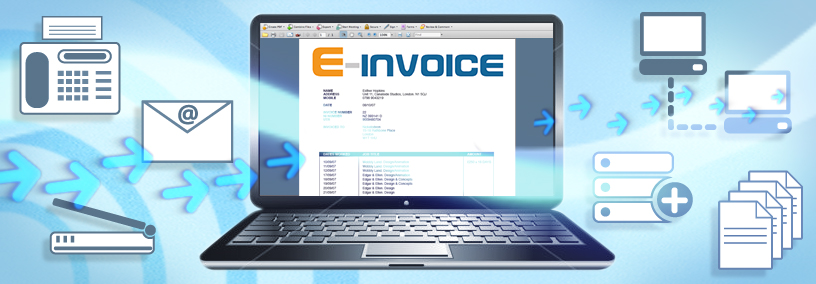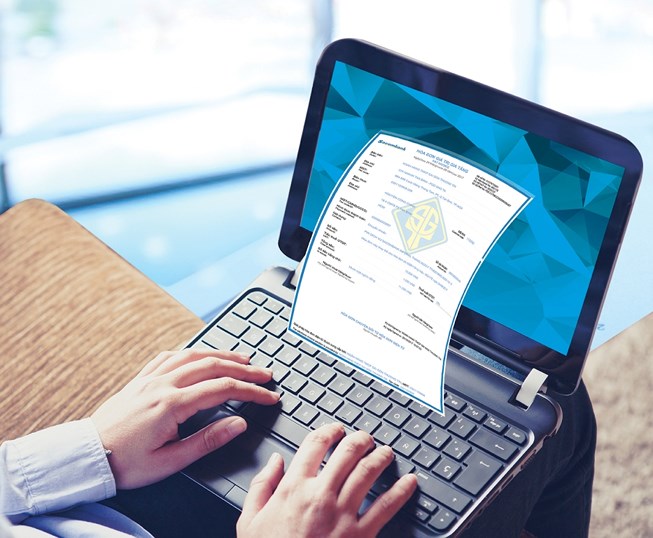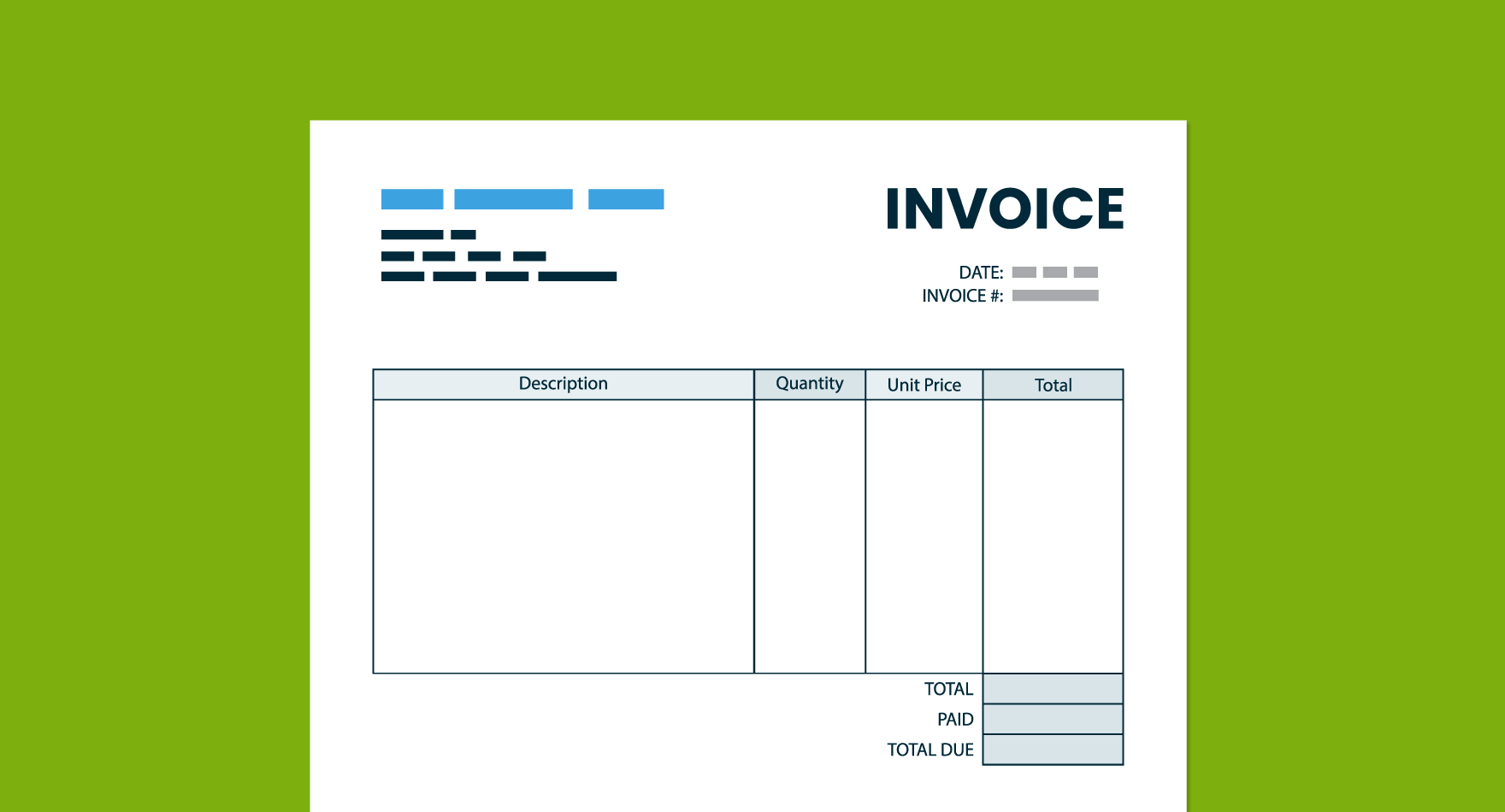Enterprises shall officially use electronic invoice from Nov 1st, 2018
In Aug 2017, The Ministry of Finance and The General Department of Taxation posted the draft Decree on goods sales and services provisions invoice to replace the Decree no 51/2010/NĐ-CP mentioning the subject who shall use electronic invoice having an identification code of tax authority. After more than 1 year of consulting and submitting to the Government, on Sep 12th, 2018 Decree no 119/2018/NĐ-CP of the Government on electronic invoice when performing sale of goods and provision of services was officially issued.
Using electronic invoice will bring many benefits for the enterprises. With e-invoice, the enterprise can save the cost, the time to carry out administrative procedures and to transport the invoice to the customers. In addition, the enterprises can also enhance the company’s reliability through e-invoice with an identification code of tax authority. Not only the enterprises but also the state is beneficial from the electronic invoice. The control and grant identification code for electronic invoice for each invoice help prevent the use of fake invoice or expired invoice or false invoice, repeated use of invoices when transporting goods for sale to deduct taxes. The regulations of officially apply the electronic invoice is one progressive innovation, catching up with the new trend of Industrial Revolution 4.0.

Below are some notable contents in the new Decree on electronic invoice when performing sale of goods and provision of services that the Enterprises should consider:
Firstly, what is the electronic invoice?
Electronic invoice (e-invoice) means an invoice which is represented in the electronic data form, is created by an organization or individual selling goods or providing services, shows information about these goods or services, digital signatures and electronic signatures as per the law by using electronic instruments, even including those invoices created by POS cash registers with network connections for transmission of electronic data to tax authorities.
E-invoice includes:
- Value-added invoice (apply to organizations and individuals performing sales of goods and provision of services that declare value-added tax by the credit method)
- Sale invoice (apply to organizations and individuals performing sale of goods and provision of services that declare value-added tax by the direct method)
- Other types of invoice including: e-stamps, e-tickets, e-cards, e-receipts, electronic ex-warehousing cum transport bill or e-documents which have other names but the same content of e-invoice.
Secondly, subject applying electronic invoice
Enterprises, economic organizations, other organizations shall use the e-invoice with an identification code of tax authority when performing sale of goods and provision of services regardless of the value of each sale of goods or provision of services.
Nevertheless, there still have some enterprises can issue e-invoice without an identification code of tax authority when performing sale of goods and provision of services regardless of the value of each sale of goods or provision of services. In detailed, they are the enterprises operating in the sector of: electricity, petroleum, post and telecommunication, air transport, road transport, rail transport, sea transport, inland water transport, clean water, finance and credit, insurance, healthcare, electronic commerce, supermarket business, commerce. In addition, enterprises or economic organizations, which have already transacted or will transact with tax authorities via electronic means, develop information technology infrastructure and use accounting software and e-invoicing software systems that meet the needs of e-invoicing and access to e-invoices, store e-invoice data in accordance with regulations and ensure the electronic data transfer to buyers and tax authorities can also use e-invoice without the tax authority’s identification code. Although, if the enterprises operate in the above sectors but pose high risks related to taxes shall be required to use e-invoices with the tax authority’s identification code for their provision of goods or services, regardless of value of each provision of goods or services. (The tax authority’s identification code inscribed in the e-invoice is composed of a transactional number which is a sole numerical series and a chain of characters which is invented by the tax authority based on the information provided by the seller on the e-invoice).
Specially, the business household or individuals keeping accounting records, regularly hiring at least 10 employees and earning the preceding year’s revenue which equals at least 03 (three) billion dong in the agriculture, forestry, aquaculture, industry or construction sector, shall be obliged to use e-invoice with the tax authority’s identification code for their provision of goods and services, irrespective of the value of each provision of goods or services.
The using of identification code will help increase the accuracy of the information and the level of credibility of the enterprises.

Thirdly, conversion of e-invoice into paper vouchers
The legal e-invoice may be converted to paper voucher but must ensure the correspondence between e-invoice and paper voucher after converting. Nonetheless, the paper voucher shall only be retained for book and monitoring purposes only in accordance with the law on accounting and the law on electronic transactions, and shall not be valid for use in transactions or payments, except for cases where invoices are created form POS cash register with network connections for electronic data transfer to tax authorities.
Fourthly, registration for use of electronic invoice
Enterprises, economic organizations, other organizations, business house hold, individuals shall register for the access to e-invoices with/without tax authorities’ identification codes at the Web Portal of the General Department of Taxation. From the date on which e-invoice with/without the tax authority’s identification code are used, enterprises, economic or other organizations, business households or individuals shall be bound to destroy paper invoices which remain unused (if any) in accordance with the regulations.
Fifthly, free provision of services related to e-invoices with tax authorities’ identification code
To encourage and support the entities using e-invoice, The General Department of Taxation shall not charge the following enterprises, economic organizations, business households or individuals when providing e-invoice services with tax authorities’ identification code:
- Small- and medium-sized enterprises, cooperatives, business households and individuals that operate at areas facing socio-economic difficulties or extreme socio-economic difficulties;
- Small- and medium-sized creative startups prescribed by soft laws and business households or individuals that are transformed into enterprises (except those stated in point a of this clause) within a period of 12 months after their establishment;
- Business households or individuals. In case the business households, individuals are subject to the use of invoice with the tax authorities’ identification code shall not be charged within a period of 12 months from the month of use of e-invoices with tax authorities’ identification codes;
- Other small- and medium-sized enterprises which are defined according to the requests of the People’s Committees of centrally-affiliated cities and provinces, and the regulations of the Ministry of Finance, except enterprises operating at economic zones, industrial parks or hi-tech zones;
- Those falling into other cases in which they are entitled to incentive policies under the decision issued by the Ministry of Finance.
Therefore, from the date of November 1st 2018 that the Decree no 119/2018/NĐ-CP comes into force, the business entities mentioned above shall execute the e-invoice as provided by the law. Even though in order to let the business entities have time to build the information technology infrastructure, also get familiar with the e-invoice, the Decree regulated that the enterprises, economic or other organizations, business households, and individuals shall be complete the using of e-invoice by November 1st, 2020.
In case enterprises, economic organizations have informed the issue of e-invoices without tax authorities' identification codes or have registered the use of e-invoices with tax authorities' identification codes before the entry into force of this Decree, they shall be allowed to continue to use existing e-invoices from its effective date. Besides, in order not to waste the paper bill printed and also in order to enable the entities to adapt to the new regulations and prepare for the information technology infrastructure, if enterprises, economic organizations, business households or individuals that have informed the issue of externally printed or internally printed invoices or have purchased invoices issued by the tax authority for use before the entry into force of this Decree shall be entitled to continue to use these invoices until end of October 31, 2020 and send the database of invoice to the tax authority.

With respect to businesses newly established during the period from November 1, 2018 to October 31th, 2020, if they haven’t meet the information technology infrastructure requirements, they shall use the externally printed or internally printed invoices or have purchased invoices issued by the tax authority until October 31th, 2020 to build the information technology infrastructure.
*****
Please contact us for any further concerns related to the topic of this article.
About Us
Asia Business Consulting is a boutique consulting firm specializing in corporate establishment, legal and business advisory, tax and payroll compliance, HR administration, market research to multinationals investing in Vietnam. For further information or to contact the firm, please email This email address is being protected from spambots. You need JavaScript enabled to view it. or download the company brochure. You can stay up to date with the latest business and investment news in Vietnam by subscribing for our newsletters.